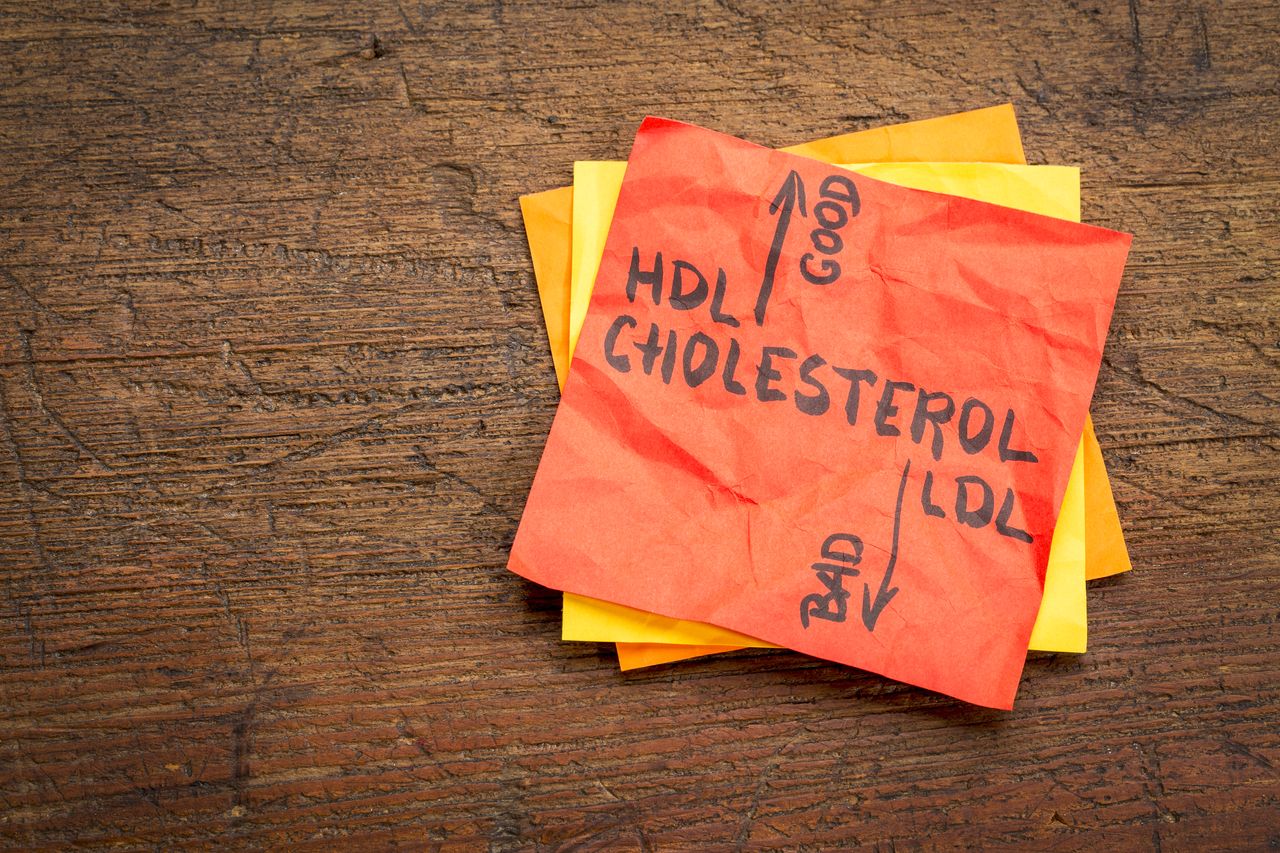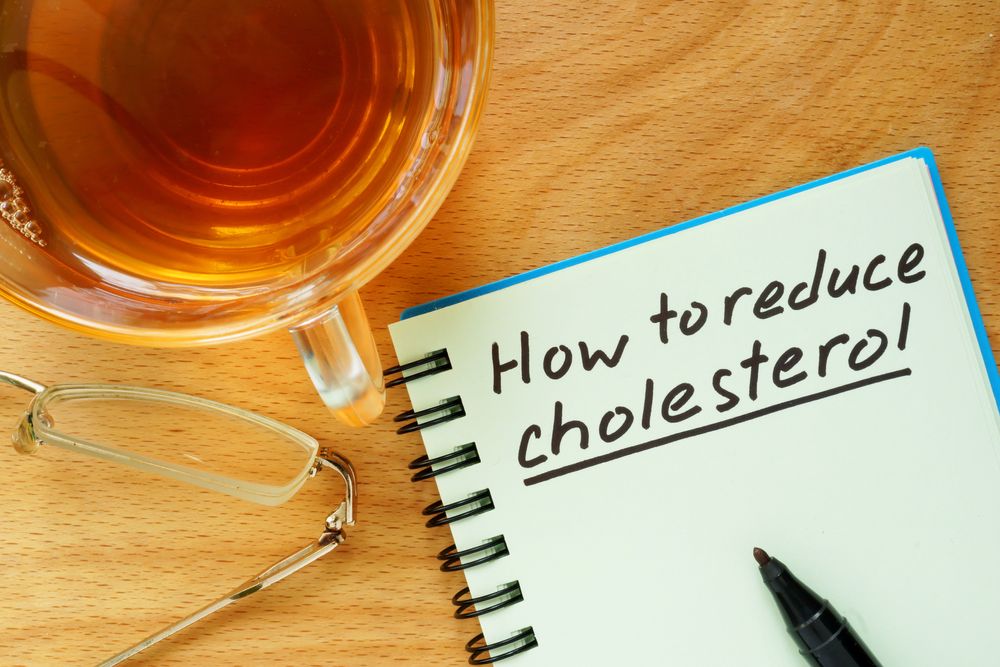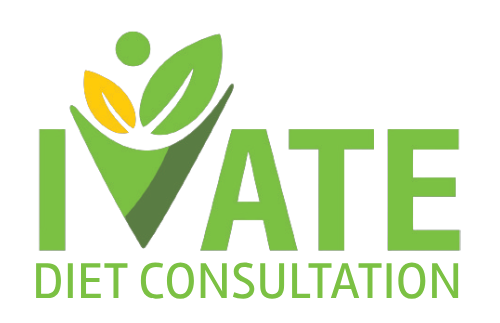
6 Natural Ways To Lower Your Cholesterol Levels
In simplest terms, cholesterol is a waxy substance present in your blood. It is essential for the build-up of healthy cells in your body. Although it is a crucial blood component, an excess might lead to heart health issues. Thus, having constant high cholesterol levels can put your heart at risk. In addition, high cholesterol can lead to fat deposition in your blood vessels.
As a result, it restricts blood flow through arteries. These deposits can break at any time and form clots. You may suffer from a heart attack or stroke in such a situation.
You can inherit high cholesterol levels genetically. But it can also stem from sedentary lifestyle practices. Although high cholesterol is a health concern, you can treat it.
The best way to do it is by changing your dietary habits because some foods can help you regulate cholesterol. In addition, regular exercise might work wonders for you.
In some instances, you might require medicines, but you should usually avoid them. Through this article, we discuss everything that you should know about cholesterol.
Types of Cholesterol
There are two types of cholesterols, HDL cholesterol and LDL cholesterol. They are separated into two parts as per the rate of lipoproteins. A lipoprotein is a group of soluble proteins mixed with lipids in the blood plasma.
HDL Cholesterol (Good Cholesterol)
HDL refers to high-density lipoprotein. It is good cholesterol because the high HDL cholesterol level protects you against the coronary risk of heart attack and heart stroke.
Read more: HDL Cholesterol – Boost Your ‘Good’ Cholesterol Levels
It also helps remove other harmful forms of cholesterol from the bloodstream. In addition, it absorbs cholesterol and transports it to the liver. The body then flushes out excess cholesterol. As a result, high HDL cholesterol levels lower the risk of coronary diseases and strokes.
LDL Cholesterol (Bad Cholesterol)
LDL Cholesterol refers to low-density cholesterol. It is also known as bad cholesterol because a high LDL cholesterol level can increase the risk of several heart diseases.
Read more: LDL Cholesterol – What It Is & How to Lower It
In addition, a high level of LDL cholesterol can build up on the walls of blood vessels as plaque. Plaque narrows the insides of blood vessels. Furthermore, it causes difficulty in the blood flow through the heart to the body’s other organs. This blockage can cause chest pain and heart attack.
What Causes High or Abnormal Cholesterol Levels?
Several factors may hamper cholesterol levels in your body. For example, age, weight, diet, genetics, diseases, medications, and lifestyle are the major factors affecting the body’s cholesterol levels.
Age
Cholesterol generally rises with age. Teens, adults, and young people tend to have a higher risk of high cholesterol.
It is because the body loses the ability to process cholesterol gradually. Men over 45 years and women over 55 years often have high cholesterol levels.
Diet
Diet is a significant cause affecting cholesterol levels in the body. A diet consisting of high carbohydrates, saturated fat, and trans fat raises LDL cholesterol levels. At the same time, it lowers HDL cholesterol levels.
Read more: Cholesterol Diet Plan – Types, Symptoms and Foods to Eat
Weight
The risk of high cholesterol levels increases with the increasing body weight.
In addition, the accumulation of fat in the body leads to higher cholesterol levels, increasing the risk of heart attack and heart stroke.
Medical Condition/Diseases
Several diseases or medical conditions tend to affect cholesterol levels in the body.
For example, medical conditions like diabetes, insulin resistance, metabolic syndrome, obesity, hypothyroidism, and kidney diseases may disturb LDL and HDL cholesterol levels. As a result, they increase the risk of high cholesterol levels.
Menopause
Females tend to risk high cholesterol levels after menopause because they lose added protection from the decreased estrogen levels.
Medications
Several medications are capable of increasing LDL cholesterol levels in the body.
For example, thiazide, diuretics, birth control pills, antidepressants, and some HIV medicines may cause a temporary rise in LDL cholesterol levels and remove excess fluid from the body.
Genes
You can inherit high, low or a combination of cholesterol levels from one or both parents. Therefore, you should consult your doctor if you have a family history of high cholesterol levels or cardiovascular diseases.
Lifestyle
Certain lifestyles/daily habits might affect the cholesterol levels in the body.
For example, lifestyle factors like a stressful environment, less exercise, smoking, and less sleep cause LDL cholesterol to rise and lower HDL cholesterol to some extent.
Ways to Lower Cholesterol Levels

1. Monounsaturated Fats
A monounsaturated fat-rich diet has a positive impact on cholesterol levels. Monounsaturated fat maintains blood cholesterol by lowering LDL cholesterol.
It also results in a reduced risk of heart diseases and heart stroke. A monounsaturated fat-rich diet replaces saturated fats in the body, leading to a 6% to 10% drop in LDL and total cholesterol levels.
According to research, a low-fat diet lowers cholesterol levels in the body. However, it lowers HDL cholesterol and increases triglycerides, which may negatively affect the body.
In contrast, another research shows that a diet rich in monounsaturated fats has beneficial effects on the body. It lowers LDL cholesterol and increases HDL cholesterol levels. Therefore, consult an expert making any dietary modifications.
Oxidation of cholesterol can react with free radicals in the body, resulting in clogged arteries. Monounsaturated fats are proven to reduce the oxidation of cholesterol, preventing the risk of heart attack and strokes.
You can include olive oil, nuts rich in unsaturated fats, canola oil, avocados, olives, and nut butter to provide the body with the required amount of monounsaturated fats.
Carbohydrates can increase triglycerides and decrease HDL cholesterol. Meanwhile, monounsaturated fat alters the lipoprotein, raising HDL cholesterol and lowering triglycerides.
2. Omega-3 Rich Diet
An omega-3 rich diet positively impacts cholesterol levels in the body. That is because omega-3 helps develop cells and maintains cells’ health. It also lowers LDL cholesterol and triglycerides in the body. As a result, it reduces the risk of coronary heart diseases and heart strokes.
An omega-3 rich diet helps maintain healthy cholesterol levels and increases HDL cholesterol levels. Therefore, it reduces the risk of cardiovascular diseases like heart attacks. In addition, according to one study, consuming fish rich in omega-3 fatty acids twice a week can lower triglyceride levels significantly.
As per another study of 4220 adults, a change in the diet by replacing 5% calories from carbohydrates with polyunsaturated fats showed excellent results.
This replacement of calories from carbohydrate to polyunsaturated fats resulted in reduced blood glucose and insulin levels. It eventually reduced the risk of type 2 diabetes.
Fishes like tuna, salmon, mackerel, herring, shellfish, and shrimps are excellent sources of omega-3. As a result, they can help reduce the risk of heart diseases and lower cholesterol levels.
3. Weight Loss
Obesity can lead to high cholesterol levels, resulting in a higher risk of coronary diseases. For example, gaining every 10 pounds of excess fat produces approximately 10mg of excess cholesterol per day.
Therefore, losing weight can help reduce cholesterol levels. In addition, a study showed that people who lost 5-10% of their body weight noticed a considerable reduction in cholesterol levels and triglycerides.
Weight loss can provide a substantial benefit in controlling cholesterol. It can also help in increasing HDL cholesterol while lowering LDL cholesterol.
Reducing calorie intake, consuming more fibre, and reducing the daily intake of saturated fats can ease weight loss while maintaining cholesterol levels.
4. Restrict Smoking
Smoking cigarettes can lead to harmful coronary disease because it disturbs the handling of cholesterol by the body. The immune cells in smokers cannot return cholesterol to the liver using blood from vessel walls. These cells are called dysfunctional immune cells, which result in clogged arteries.
Acrolein is a harmful chemical compound present in cigarettes. On absorption in the bloodstream through the lungs, it can lessen HDL cholesterol transportation in the body. That eventually increases LDL cholesterol, leading to the risk of coronary heart diseases.
5. Reduce Alcohol Consumption
Alcohol and cholesterol do not have any direct link with each other. However, excess consumption of alcohol can cause heavy damage to the liver and decrease HDL cholesterol levels. It can also increase the risk of blood clotting, heart strokes, and heart failure.
Specific types of alcohol have different impacts on cholesterol levels. For example, beer increases LDL cholesterol levels and triglycerides. Liquor such as rum and vodka also increases the triglycerides level.
In addition, the excess calorie content in them also leads to the risk of heart diseases. Therefore, you should avoid consuming alcohol. However, even if you consume alcohol, you should limit your consumption because the cholesterol level increases with the increased consumption of alcohol.
6. Plant Sterols and Stanols
Plant sterols and stanols are cholesterol derived from plants. It is similar to cholesterol which gets absorbed through the diet. Plant sterols and stanols reduce the risk of heart diseases by lowering the LDL cholesterol in the body. When plant sterols and stanols are absorbed through diet, it inhibits cholesterol absorption in the body.
Some available supplements can provide you with plant sterols and stanols. Still, a certain amount of plant sterol and stanol is present in vegetable oils and added in several other oils and substitutes of butter.
Some clinical studies show that consuming 1.5-3 grams of plant sterols and stanols has proven helpful in reducing LDL concentration by 7.5-12%. In addition, their consumption along with your meals can generously lower cholesterol.
Risks Associated with High Cholesterol Levels
Coronary Disease
Several coronary diseases may result from high cholesterol levels. High cholesterol levels lead to plaque accumulation on the walls of arteries, resulting in further narrowing of arteries. It causes difficulty in blood flow that results in heart attack and strokes.
High Blood Pressure
High cholesterol levels cause high blood pressure. In addition, when the arteries narrow down, the heart’s blood flow to other organs gets difficult. As a result, the heart tries to pump blood with an increased force, leading to blood pressure.
Peripheral Vascular Disease
Peripheral vascular disease is a disease of blood vessels. It generally affects the blood vessels indirectly connected with the heart and brain. In peripheral vascular disease, these blood vessels get clogged with plaque.
Kidney Failure
In some cases, kidney failure occurs due to high cholesterol. High cholesterol levels cause plaque build-up in the blood vessels connected with kidneys that lower blood supply, resulting in shrinking and scarring.
Aneurysm
An aneurysm is also a cause of sudden death. A lump develops in the inner lining of weakened blood vessels, which results in the bursting of blood vessels.
Stroke
A stroke occurs when the arteries get blocked and leave no space for the blood to pass to the brain. Restricted blood flow to the part of the brain causes a stroke.
Abdominal Cramps
Cholesterol accumulation in the liver and spleen results in the enlargement of the liver and spleen. That causes stress on the abdominal cavity, leading to abdominal pain.
Conclusion
Cholesterol is an amphipathic lipid belonging to the steroid family of lipids. There are two types of cholesterol: HDL cholesterol (good cholesterol) refers to high-density cholesterol, and LDL (bad cholesterol) refers to low-density cholesterol.
A high LDL cholesterol level in the body causes a severe risk of coronary disease, heart attack, and strokes. On the other hand, HDL cholesterol helps eliminate the effect of other harmful cholesterol in the body.
Several factors affect cholesterol levels in the body. For example, factors like age, diet, genetics, medications, lifestyle and diseases affect cholesterol levels.
Specific risks associated with high cholesterol levels eventually lead to sudden death. In addition, diseases like coronary heart disease, peripheral vascular disease, and aneurysm occur in people with high cholesterol levels.
Therefore, you should follow a monounsaturated and polyunsaturated fats-rich diet. In addition, you should eliminate smoking and drinking alcohol.
That can exceptionally help you manage cholesterol levels in the body. You should also follow an active lifestyle.
Frequently Asked Questions (FAQs)
Q. What reduces cholesterol quickly?
A. Adapting to specific lifestyle changes such as consuming monounsaturated fats and omega3 rich diets, losing excess weight, and regularly exercising helps reduce cholesterol fast. A monounsaturated fat-rich diet may even lower bad cholesterol levels by 6%-10%. If you’re a smoker with high cholesterol, you should quit smoking to see faster changes in cholesterol levels. Furthermore, limiting alcohol consumption is also helpful to reduce cholesterol levels in the body.
Q. What are the worst foods for high cholesterol?
A. If you have high cholesterol, you should highly restrict the consumption of foods high in saturated fat, trans-fat, and hydrogenated fat. Some unhealthy food choices for cholesterol are deep-fried snacks, butter, cheese, chips, doughnuts, crackers, and margarine. In general, foods high in sugar, salt, and unhealthy fats are the worst foods for cholesterol.
Q. Can drinking water reduce cholesterol?
A. Drinking water does not directly impact or reduce your cholesterol levels. However, drinking plenty of water along with regular exercises stimulates your metabolism. A healthy metabolism supports your body to fight off the extra cholesterol. In addition, you will also have to make specific dietary changes to see significant results. Drinking water alone will not reduce cholesterol.
Q. How can I lower my cholesterol in 7 days?
A. Dietary and lifestyle changes hold prime importance in reducing cholesterol. However, they do not yield overnight results. To see a quick reduction in cholesterol levels, you should start by eating right. For example, you should reduce the saturated fat in your diet and eliminate trans-fat, add more omega3 fatty acids, fruits, whole grains, and green leafy vegetables to your diet. These dietary changes will help you experience significant improvement in your cholesterol levels.
Q. Is coffee bad for cholesterol?
A. Although coffee does not contain any cholesterol, drinking too much could potentially cause a rise in blood cholesterol levels. That is because, Diterpenes, a type of chemical compound in coffee, suppresses the breakdown of cholesterol. As a result, it increases total cholesterol and LDL (bad cholesterol) levels. However, moderate consumption of coffee does not negatively affect cholesterol levels.
Q. What are the warning signs of high cholesterol?
A. The warning signs of high cholesterol differ from person to person. Not everyone experiences the same symptoms. Common warning signs include prolonged hypertension, obesity, chest pain or angina, nausea, extreme fatigue, and shortness of breath. In severe cases, high cholesterol stimulates the signs of a stroke or heart attack.
Q. Do bananas lower cholesterol?
A. Bananas have zero cholesterol. The fibre and potassium content in bananas helps reduce cholesterol levels and blood pressure. However, eating bananas alone cannot lower your cholesterol levels. You need to switch to a healthy diet and regular exercise to efficiently lower cholesterol levels.
Q. Are eggs good for cholesterol?
A. Egg yolks naturally contain cholesterol, but it has a negligible effect on blood cholesterol. Compared to foods high in saturated and trans-fats, eating eggs is not particularly detrimental because they do not raise your cholesterol. However, you should consume them in moderation.
Q. Is Quaker Oatmeal good for high cholesterol?
A. Yes, Quaker oatmeal is good for cholesterol. Oats contain beta-glucan, a type of soluble fibre that aids in reducing bad cholesterol levels in the blood. Furthermore, the soluble fibre in Quaker oats lowers cholesterol absorption in the bloodstream. Eating just one cup of cooked Quaker oatmeal per day can reduce cholesterol levels by 5 to 8%.

